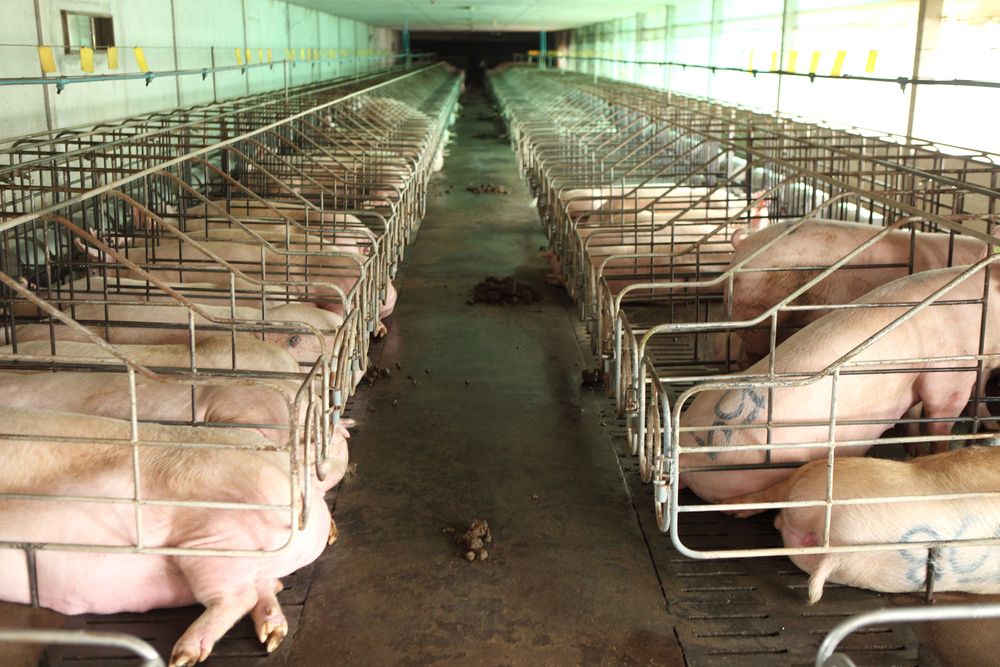Livestock Workers May Carry Staph Bacteria from Pigs

Workers who handle livestock may carry antibiotic-resistant bacteria in their noses after they leave the farm.
A small study of hog workers in North Carolina found that many carried staph bacteria (Staphylococcus aureus) and some carried drug-resistant strains of the bug, including methicillin-resistant Staphylococcus aureus or MRSA.
Over the past several decades, it's become standard practice for farmers to give animals, such as chickens and pigs, regular doses of antibiotics. This is not done to fight bacterial infections, but rather to promote the animals' health and speed up their growth.
However, the increasing use of antibiotics has encouraged the evolution of drug-resistant strains of bacteria. There is now even a livestock-associated strain of MRSA, a bacterial strain that, in humans, can cause debilitating, sometimes deadly, infections and is known for spreading among hospital patients. [6 Superbugs to Watch Out For]
About one-third of people in the general population carry the human-associated strain of Staphylococcus aureus in their noses at any given time, according to the Centers for Disease Control and Prevention. When the bacteria do cause an infection, it usually isn't life-threatening. Staph infections can become more serious problems when they involve surgical wounds, the bloodstream, the lungs or the urinary tract, according to Johns Hopkins University. Antibiotic-resistant strains of staph such as MRSA can be the most damaging because they can be very difficult to treat.
In the new study, which was described in the journal Occupational and Environmental Medicine this month, 22 hog workers swabbed the inside of their noses several times over the course of 14 days. The researchers found that 19 (86 percent) of the workers carried some form of Staphylococcus aureus, and 16 workers (73 percent) carried livestock-associated staph at some point in those two weeks.
But 10 of those 22 workers (46 percent) persistently carried livestock-associated staph; these strains were found either in all, or all but one, of their nasal samples over the 14-day study. Six of the workers persistently carried the variety of Staphylococcus aureus that is resistant to multiple drugs, and is known as MDRSA (multi-drug resistant Staphylococcus Aureus), and one worker persistently carried MRSA. Some of the workers still had the bacteria in their noses even after they spent four days off work and away from the hog farm.
Sign up for the Live Science daily newsletter now
Get the world’s most fascinating discoveries delivered straight to your inbox.
The bacteria may have a greater chance of spreading to the workers' families, communities and even into hospitals if the bacteria linger in the workers' noses after they leave the hog operation, the researchers said. Previous research has shown that people who persistently carry Staphylococcus aureus have an increased risk of infection in clinical settings. But more work is needed to find out if there's a link between the workers who carry livestock-related staph in their noses and increased infections.
"We're trying to figure out if this is mainly a workplace hazard associated with hog farming, or is it a threat to public health at large," study leader Christopher Heaney, an assistant professor at the Johns Hopkins Bloomberg School of Public Health, said in a statement. "To do that we need to learn more not just about how long workers carry bacteria in their noses, but how [the length of this time period] relates to the risk of infection and other health outcomes in workers, their families, and communities."
Follow Megan Gannon on Twitter and Google+. Follow us @livescience, Facebook & Google+. Original article on Live Science.












